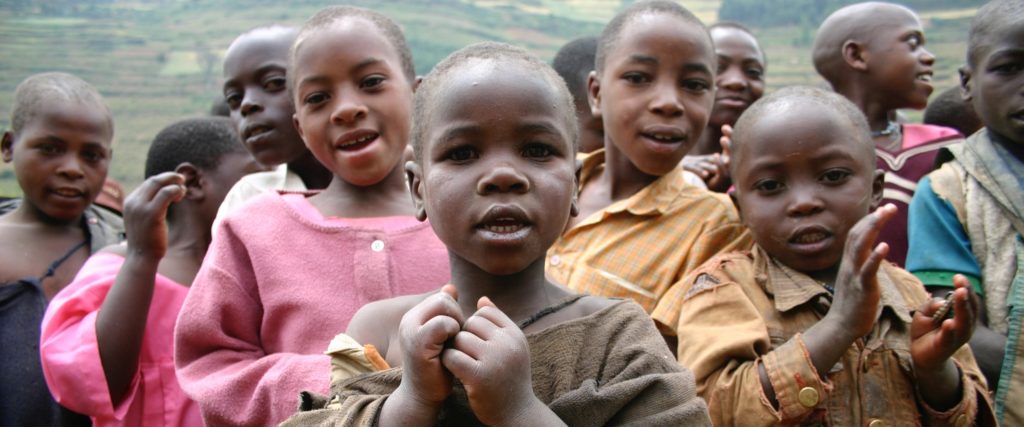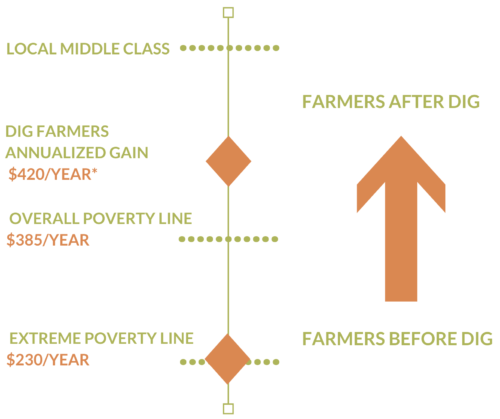

When we first arrive in a region, DIG joins an established local partner such as a hospital, clinic, orphanage, school, HIV community group or other organization. By listening and learning before we ever plant a seed, we ground ourselves in the land, its people, and the broader community.
Our local partners introduce us to the uniquely marginalized community members whom our program prioritizes, and we then bring these individuals together around their shared vulnerabilities.
Agroecology is a sustainable farming approach that works with nature to address critical issues of hunger, poverty, climate change and environmental degradation. It is a scientific discipline, a set of practices and a social movement.
With new access to nutrient-rich vegetables, graduates experience an improvement in their their health, wealth, and sense of belonging. They are also more likely to access to additional opportunities offered by other organizations previously inaccessible to them.
We know that when a school can better feed their students, education improves. When a hospital’s anemia rates go down, maternal and infant health outcomes increase. When a person living with HIV is well nourished, they are better able to provide for their families and contribute to their community.

*The $420/year gain was calculated by combining the money earned from sales of excess produce plus any money saved from not purchasing food annually. This was determined by a Cost Effective Analysis done in partnership with the Heller School for Social Policy and Management at Brandeis University and DIG.
The poverty line statistics come from Migori County Kenya where 46% of the populations lives below the overall poverty line.